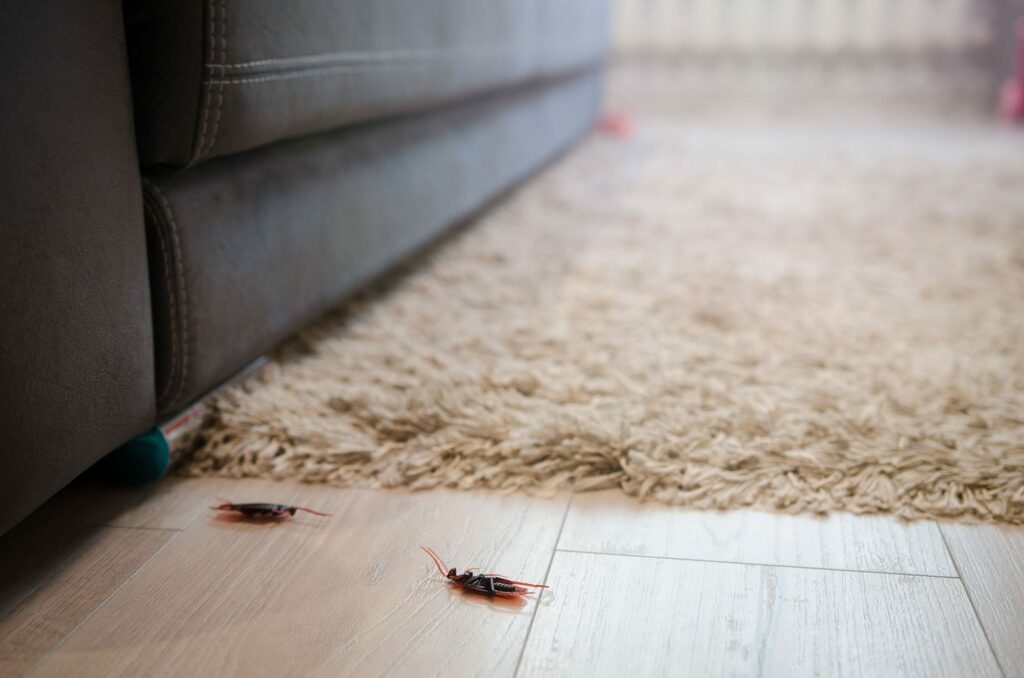
Contents
Cockroaches are tough insects. It is even said that they can survive a nuclear blast. If that is true, then it should be no surprise that cockroaches have been around for over 300 million years, and with their incredible durability, it is possible they can last for another 300 million years.
Cockroaches have been successful in the longevity of their species because of their adaptability. Of course, Earth has gone through countless changes over the last 300 million years, but the cockroach has even adjusted in relatively recent history to life with humans. It makes this even more possible because a cockroach in your house can eat almost anything.
Their diet is about as wide as it could get. Cockroaches prefer some foods, such as starches, sweets, grease and meat, but they will also eat leather, glue, hair, and decaying organic matter. Your house is also at risk from a cockroach’s appetite, as it can also chow down on wallpaper and stamps, primarily for the glues on them.
How do cockroaches get in your house? Well, it’s difficult to spot a cockroach due to their nocturnal behavior. During the day, they will hide away in dark, secluded areas, waiting to come out at night in search of food and water. If you do spot one cockroach, that is actually a sign of many, many more. Cockroaches produce eggs in capsules that they will often carry. These capsules can produce up to 400 offspring in a year, and after an egg hatches, the cockroach will mature in a relatively short time and continue with the reproduction process.
Besides their nocturnal behavior, the size of the cockroach allows them to make their home through the smallest of cracks. This creates problems for homeowners in the sense that it is difficult to guess how large the population of cockroaches is inside the house.
Besides the damage the cockroaches cause to your home, we also know them to carry some diseases, such as Staphylococcus, E. Coli, Salmonella, and Streptococcus. They can contaminate your food, where they will transfer bacteria, causing illnesses like food poisoning, dysentery or diarrhea.
However, a cockroach can survive without food for as long as one month. They can last so long without sustenance because of their cold-blooded biology. Cockroaches still will only last one week without water, but even if you cannot spot a cockroach at its most active time, imagine what they could be doing behind the walls.
Because the cockroach is so durable and adaptive, eliminating an infestation can be extremely difficult. Like many pests, the best way to remove them is to prevent their presence. Keep food sealed and stored properly, clean the kitchen and living areas to avoid crumbs lying around, regularly dispose of your garbage, and seal cracks around the house regardless of how small it may be.
The durability of the cockroach means that the durability of your home and your health are at risk. If you think you may have a problem with cockroaches, contact the pest control specialists at Van Den Berge Pest Control at 616-392-7367.
Trust the locally owned, widely renowned experts at Van Den Berge Pest Control for all of your pest needs. With over 100 years of combined experience throughout the Holland, MI-based pest control team, you know you’re in expert hands with our state-certified experts.
Recent Posts
Why Choose Chemical Methods for Pest Infestation Prevention?
Are you tired of battling pesky pests that invade your home or garden? Look no
Why Trust Our Termite Inspection and Treatment?
Rely on our termite inspection and treatment because our team of experts is certified and
Six Effective Chemical Pest Prevention Methods
They say that prevention is better than cure, and this adage holds true when it
